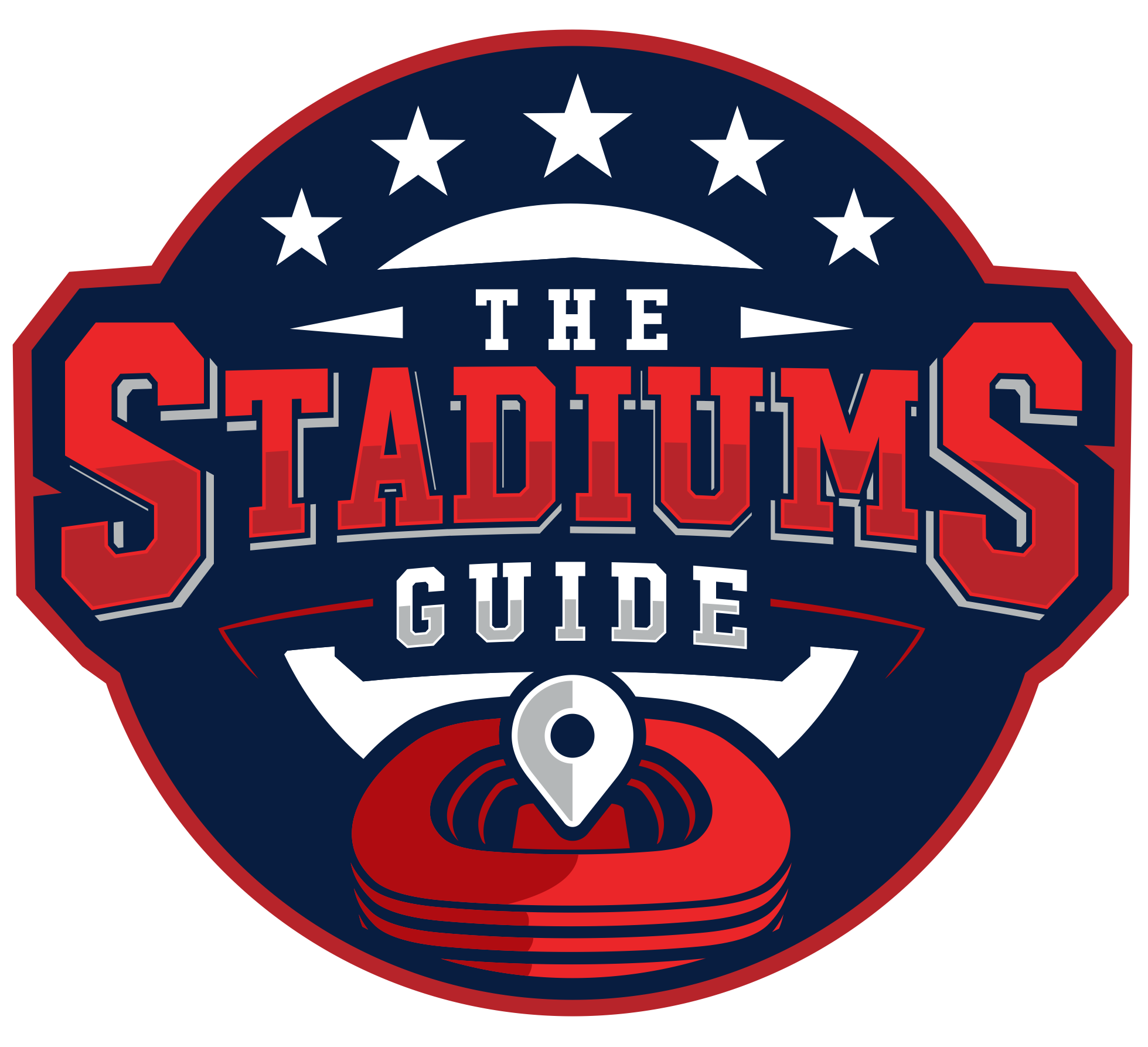Volkswagen Arena, located in the city of Wolfsburg in Lower Saxony, Germany, is a state-of-the-art football stadium that serves as the home ground of VfL Wolfsburg. Opened in 2002, it stands as a symbol of passion and unity among football fans, with a seating capacity of 30,000 spectators. The arena derives its name from the automotive giant Volkswagen AG, which has strong ties to the city and its football club.
VfL Wolfsburg, a professional football club established in 1945, has experienced considerable success over the years, with a highlight being their 2009 Bundesliga Premier League victory. The Volkswagen Arena has witnessed numerous memorable moments in the club’s history, fostering excitement and camaraderie among supporters during thrilling 90-minute matches.
The stadium not only serves as a top-tier sporting venue but offers fans and visitors a chance to embark on stadium tours. These behind-the-scenes experiences provide insights into the impressive features of the iconic Volkswagen Arena and the AOK Stadion. Steeped in modern architecture and a vibrant atmosphere, the Volkswagen Arena truly represents the heart and soul of VfL Wolfsburg.
History of Volkswagen Arena
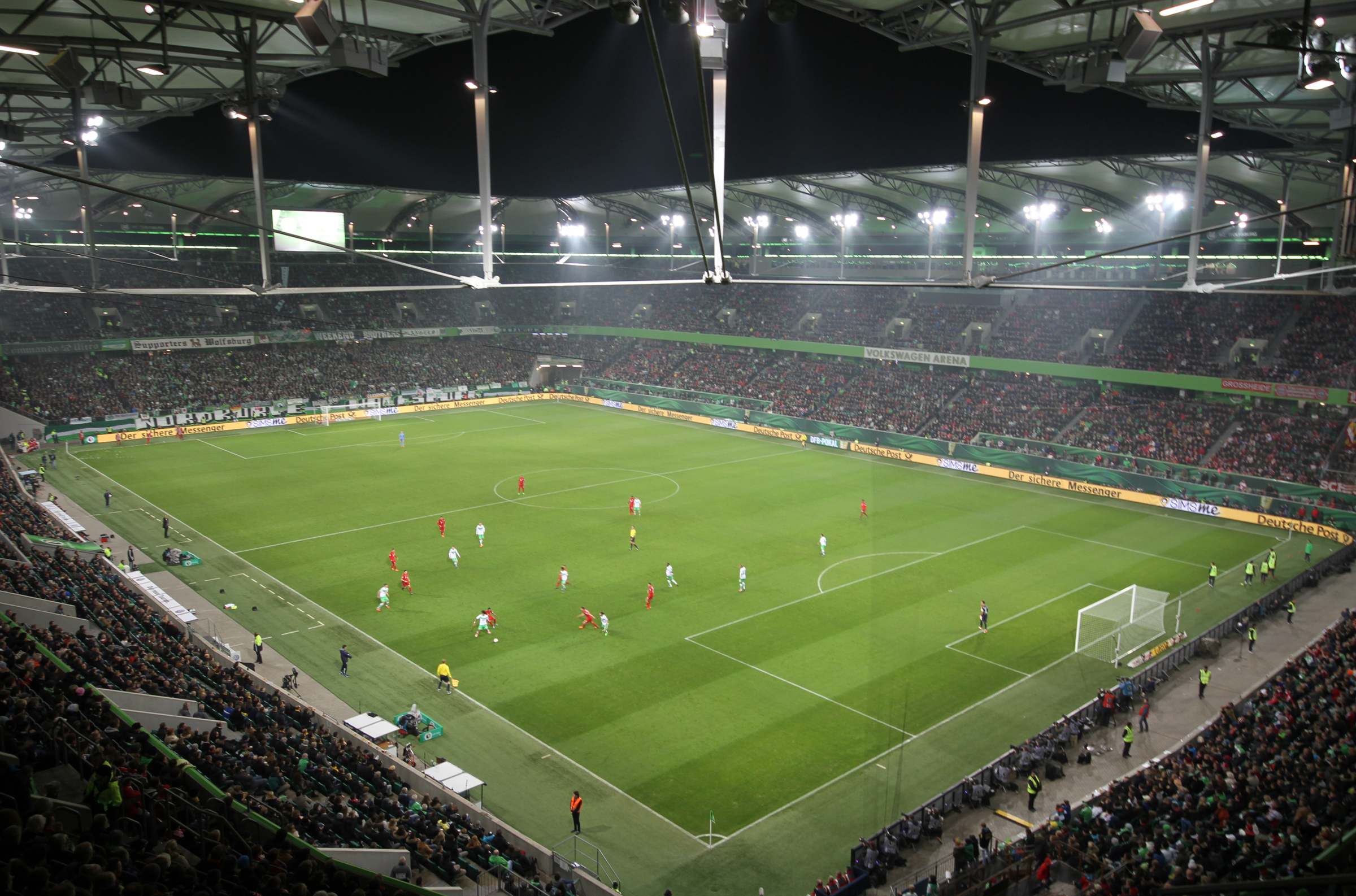
The journey of Volkswagen Arena began in 1997, when VfL Wolfsburg, a German football club, earned promotion to the Bundesliga, the premier football league in Germany. This significant achievement led to increased commitment from the Volkswagen Group towards the club, and consequently, serious discussions on constructing a new stadium started by the end of the year. The former VfL-Stadion am Elsterweg no longer met the requirements for the league.
Construction of the Volkswagen Arena commenced in May 2001, and the stadium was completed by December 2002, replacing the old VFL-Stadion. With the total cost reaching €53 million, the official inauguration took place on December 13, 2002.
Just two days after its opening, Volkswagen Arena hosted its first match, a game between VfL Wolfsburg and Stuttgart, which ended with a score of 1-2. The arena now boasts a capacity of 30,000 spectators, which includes 1,434 business seats, 31 VIP lounges, and around 100 spaces for disabled supporters.
Since its inception in 2002, the Volkswagen Arena has become an iconic location, bringing together passion and dedication to the sport. Fans of all ages gather in the stands to cheer on their team for an intense 90 minutes, making it all about winning together. In addition to football matches, the arena is also capable of hosting various functions and events, showcasing its versatility as a prominent venue.
Architectural Design
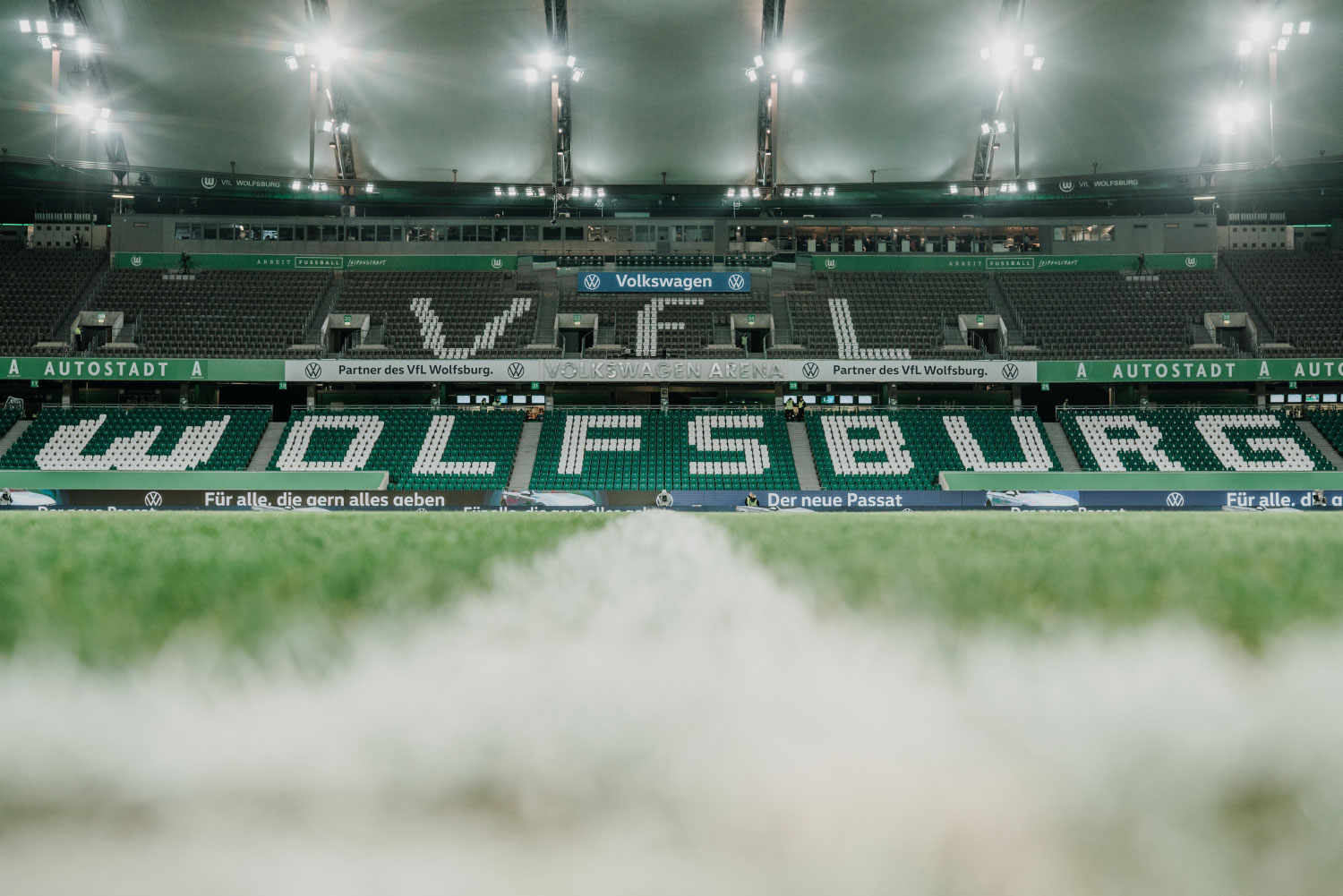
The Volkswagen Arena, home of VfL Wolfsburg, is a modern stadium designed to accommodate 30,000 spectators for football matches and other events. The venue, which opened in 2002, combines cutting-edge architectural features with maximum functionality and comfort for fans.
One key aspect of the Volkswagen Arena design is its distinctive roof construction. The roof is an innovative mix of materials consisting of steel, glass, and polycarbonate, which allows for excellent light penetration while offering effective protection against the elements.
Inside the arena, the design ensures that all fans have a great view of the pitch. The seating arrangement within the stadium is divided into two tiers. The lower tier provides a close-up view of the action, while the upper tier’s gently sloping design guarantees an unobstructed perspective for all attendees.
Accessibility for all fans is a central consideration in the Volkswagen Arena’s design. Numerous entry points are located around the stadium, ensuring smooth and efficient entry for supporters. The venue is also equipped with ample facilities to cater to fans with disabilities, including wheelchair-accessible seating and specialized restroom facilities.
Apart from its primary function as a football stadium, Volkswagen Arena has been carefully designed to accommodate a variety of events, such as concerts by world-famous artists like Anastacia and Elton John. The arena’s acoustics and adaptable stage setups ensure successful collaborations with these various performance events.
In conclusion, the architectural design of Volkswagen Arena reflects its primary purpose as a functional and welcoming home for VfL Wolfsburg and its fans. At the same time, its versatile construction allows the venue to accommodate a range of events, making it a true hub for culture and sport in the local community.
Seating Capacity
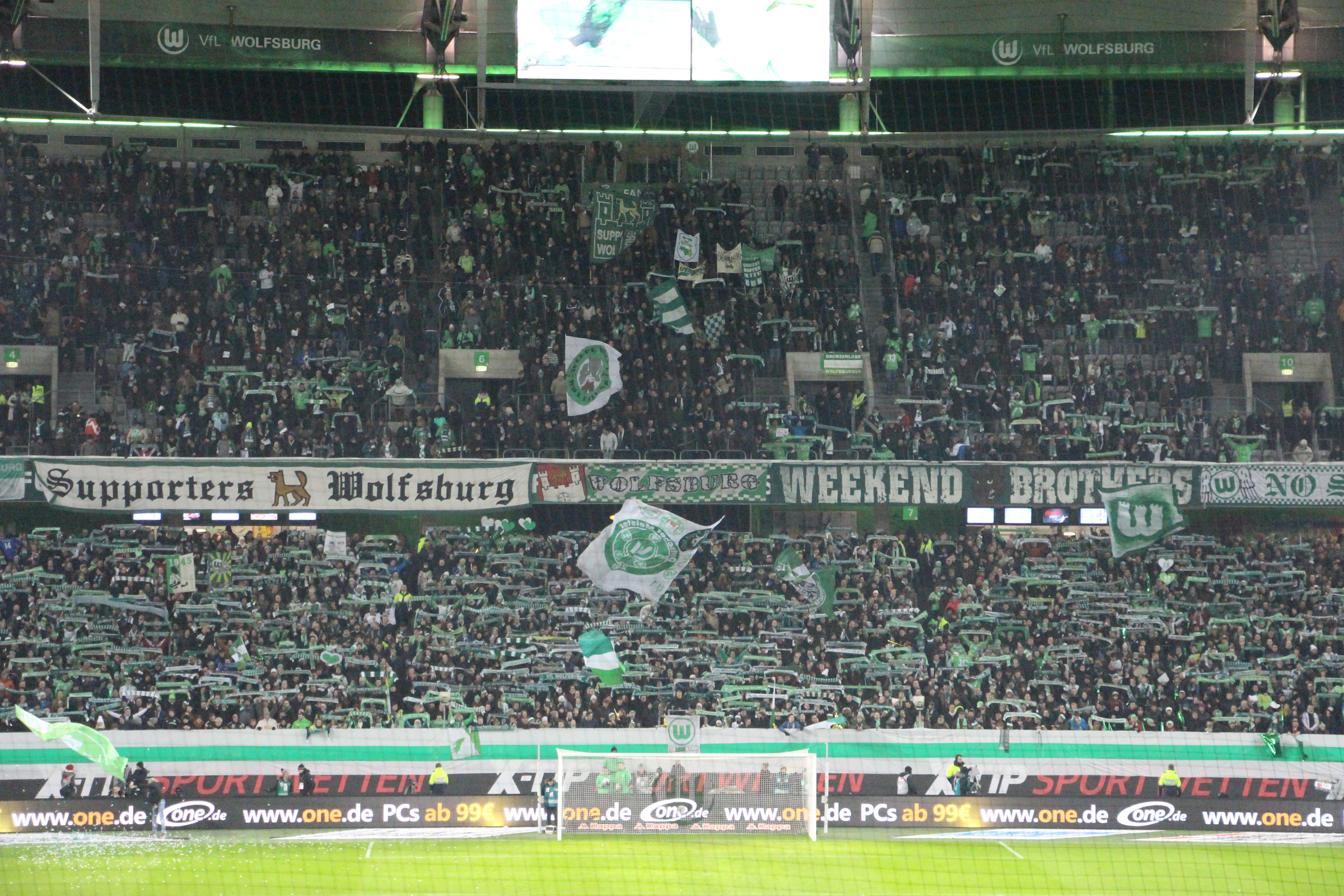
The Volkswagen Arena, located in the Allerpark, has been the proud home of VfL Wolfsburg since 2002. The stadium has a seating capacity of 30,000 spectators, which is divided into 22,000 seats and 8,000 standing places. This venue offers a dynamic and supportive environment for both the players and the fans during the matches.
In addition to regular seating, the Volkswagen Arena provides 1,434 business seats tailored to meet the needs of corporate visitors. These seats offer a more sophisticated and comfortable experience for guests during games. Furthermore, there are 31 VIP lounges that can accommodate up to 332 people and a sky lounge that can seat 56 people. These exclusive areas allow patrons to watch the action on the pitch while enjoying premium hospitality services.
The stadium is also inclusive and accessible, as it offers approximately 100 spaces for disabled supporters. This ensures that everyone, regardless of their physical abilities, can experience the exciting atmosphere in the arena and show their support for VfL Wolfsburg.
In summary, the Volkswagen Arena caters to a wide variety of spectators, with different sections designed to suit diverse preferences and needs. The 30,000 capacity of the stadium allows for a thrilling and passionate environment during VfL Wolfsburg matches, contributing to the overall football experience.
Amenities and Facilities
The Volkswagen Arena is the home ground of VfL Wolfsburg, providing a modern and passionate atmosphere for up to 30,000 fans. Since its opening in 2002, the stadium has consistently focused on delivering high-quality amenities and facilities for all visitors.
One of the key features of the Volkswagen Arena is its commitment to accessibility. The stadium offers 80 wheelchair positions and 16 seats for visually impaired supporters, ensuring that no fan misses out on an exciting matchday experience. Visually impaired fans can also listen to live commentary during the match to enhance their experience.
In addition to its accessibility options, the Volkswagen Arena provides a variety of general facilities for spectators, such as food and drink vendors, restrooms, and first aid stations. The stadium is designed to cater to fans of all ages, with plenty of seating options ensuring comfort and an enjoyable experience for everyone.
As well as hosting football matches, the Volkswagen Arena has also been the venue for various events, such as concerts featuring international artists like Elton John. This further demonstrates the versatility of the stadium’s facilities and its ability to cater to a wide range of entertainment needs.
For those interested in learning more about the Volkswagen Arena and its history, guided tours are offered, covering areas such as the press room, dugouts, and VIP sections. These tours last approximately 90 minutes and provide an insightful behind-the-scenes experience for fans and visitors alike.
In conclusion, the Volkswagen Arena is a state-of-the-art venue that ensures a memorable experience for all visitors, whether they are attending a football match or a major event. With a focus on accessibility, comfort, and variety, the stadium’s amenities and facilities make it a top choice for fans.
VfL Wolfsburg Club History
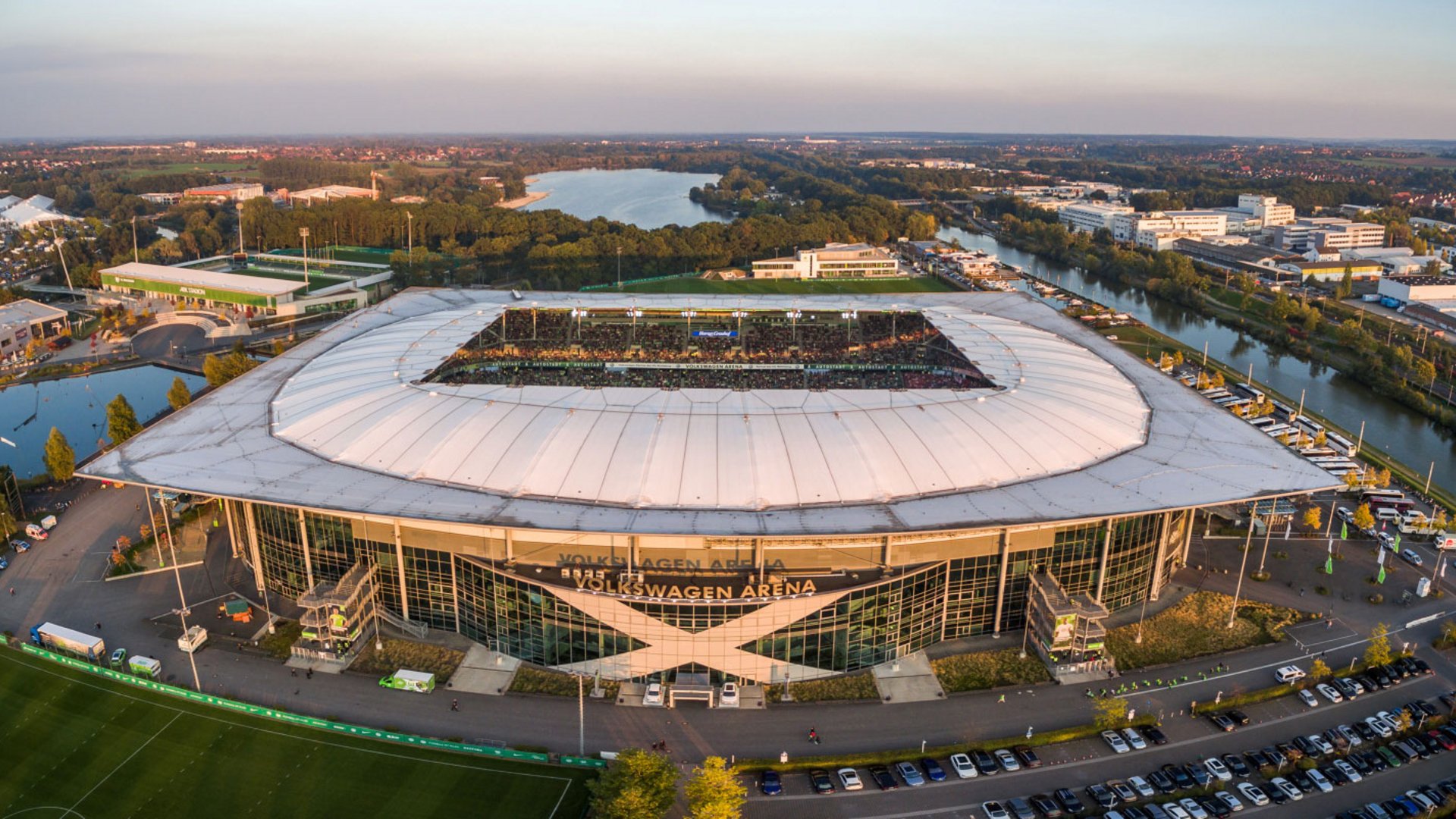
VfL Wolfsburg, a professional football club located in Wolfsburg, Germany, has a rich history that dates back to its foundation in 1938. The club was initially established to support the autoworkers of Stadt des KdF-Wagen, the city that would later become Wolfsburg. The first affiliated football team was known as BSG Volkswagenwerk Stadt des KdF-Wagen, a works team.
The club achieved a significant milestone in 1997 when it was promoted to the Bundesliga, Germany’s premier football league. This event prompted the Volkswagen Group to strengthen its commitment to VfL Wolfsburg, leading to discussions about constructing a new, modern stadium that met the high standards of the Bundesliga.
In response to the club’s growing success, the Volkswagen Arena was built between May 2001 and December 2002, replacing the old VfL Stadion. The arena opened its doors on December 13, 2002, and hosted its first match between Wolfsburg and Stuttgart just two days later.
With a capacity of 30,000 spectators, the Volkswagen Arena caters to diverse needs, offering 1,434 business seats, 31 VIP lounges, and approximately 100 spaces designated for disabled supporters. Since its opening, the arena has hosted numerous functions and events, testifying to its versatility.
In addition to their successes on the field, VfL Wolfsburg has made a name for itself as an inclusive and welcoming club. In 2009, the team reached its peak when they captured the prestigious German Bundesliga Premier League title. This historic event was celebrated at the Volkswagen Arena, with 30,000 fans witnessing the club’s captain, Josué, lift the championship trophy high into the sky above Wolfsburg.
Notable Matches and Events
The Volkswagen Arena, home to VfL Wolfsburg since 2002, has hosted several noteworthy matches and events throughout its history. One of the most memorable games played at the stadium was Wolfsburg’s 5-1 victory over Bayern Munich on September 22, 2015. This match was especially significant as it marked the end of Bayern Munich’s 19-match unbeaten run in the Bundesliga.
Another unforgettable moment in Volkswagen Arena’s history was the 2008-2009 Bundesliga season, when VfL Wolfsburg won their first-ever league title. The match that sealed their championship status was played at the Volkswagen Arena on May 23, 2009, in which Wolfsburg defeated Werder Bremen 5-1.
In addition to memorable matches, the Volkswagen Arena has also hosted several concerts by world-famous music artists. Notable performances include concerts by Anastacia and Elton John, showcasing the versatility of the stadium and its capacity to accommodate large-scale events beyond football.
Moreover, the Volkswagen Arena has been a preferred venue for various national team matches for Germany. Hosting international friendlies and European Championship qualification matches demonstrates the arena’s ability to provide a top-quality environment for players and spectators alike.
Community Involvement

The Volkswagen Arena, home of VfL Wolfsburg, plays a crucial role in community engagement and fostering a sense of togetherness among soccer enthusiasts in Wolfsburg. With a capacity of 30,000, the arena provides an inclusive space for fans of all ages to support their team for 90 minutes, fostering unity and a shared passion for the sport.
In addition to hosting VfL Wolfsburg’s home matches, the Volkswagen Arena also actively contributes to the local community. The arena serves as a venue for a variety of functions, events, and entertainment, offering a diverse array of experiences to its visitors. This opens up opportunities for community members to connect with one another, further solidifying the strong bond between the team and its supporters.
Accessible from the Wolfsburg Hauptbahnhof train station and the city’s central bus station, the Volkswagen Arena’s central location allows for easy community involvement and interaction. Its proximity to the AOK Stadion enables fans to catch the VfL Ladies and men’s Under-19 team matches, further reflecting the organization’s commitment to promoting inclusivity and support for athletes across different age groups.
Vital to fostering the community’s pride and spirit, the Volkswagen Arena’s close association with the successful VfL Wolfsburg football club—which won the German Bundesliga Premier League in 2009—provides fans with a sense of belonging and a shared history of achievements to celebrate.
Through its thoughtful design, convenient location, and wide range of events and functions, the Volkswagen Arena solidifies its position as a centerpiece of community involvement in Wolfsburg. Emphasizing inclusivity and a shared passion for soccer, the arena continues to bring people together to support their team and celebrate their successes.
Transportation and Access
The Volkswagen Arena is well-connected and easily accessible by a variety of transportation options. It is located centrally in Wolfsburg, making it convenient for both local fans and visitors to reach the stadium.
Walking: The arena is within walking distance of Wolfsburg Hauptbahnhof train station and the city’s central bus station. It takes approximately 15 minutes to walk from either of these locations to the Volkswagen Arena.
Shuttle Buses: On matchdays, VfL Wolfsburg offers free shuttle buses from the Kästorf Park & Ride car park, which has 3,200 parking spaces. These buses start operating from two and a quarter hours before kick-off, departing at regular intervals, approximately every ten minutes.
Public Transportation: In addition to the shuttle buses, the Volkswagen Arena can be reached by public transportation. The nearest bus stop is only a 4-minute walk away from the stadium. Moreover, the Wolfsburg Vfl-Stadion train station is also within walking distance, around 17 minutes from the arena.
Utilizing any of these transportation options ensures a smooth and hassle-free journey to the Volkswagen Arena, allowing fans to fully enjoy their experience at the home of VfL Wolfsburg.
Future Developments

The Volkswagen Arena, home to VfL Wolfsburg, continues to be a significant part of the city’s landscape and the club’s future. Several developments are likely to take place at this iconic stadium as the club seeks to further establish its presence and cater to its growing fan base.
One such future development is the possible expansion of the arena to accommodate more supporters. With a current capacity of 30,000, including 1,434 business seats, 31 VIP lounges, and approximately 100 spaces for disabled supporters, the stadium may see an increase in the number of spectators it can hold. As the club’s popularity grows, so will the demand for tickets, making it essential to periodically review the stadium’s capacity.
Additionally, enhancing the overall fan experience is an ongoing objective for the management. From upgrades to seating and catering options to leveraging emerging technology, the stadium will strive to stay on the cutting edge of advancements that improve the matchday experience for fans. It also means keeping the venue versatile enough to host various types of events year-round.
Another potential development is the prospect of improving the stadium’s sustainability and environmental footprint. The arena could incorporate innovative solutions such as renewable energy sources, better waste management systems, and improved water efficiency measures to minimize its overall impact on the environment.
Furthermore, the stadium’s accessibility will be a key consideration in future development plans. Located within easy walking distance of Wolfsburg Hauptbahnhof train station and the city’s central bus station, ensuring that the ground remains well-connected to public transport options will be vital.
In conclusion, the future developments at Volkswagen Arena will be guided by the priorities of accommodating an expanding fan base, enhancing the overall spectator experience, embracing sustainability, and maintaining easy access for all attendees. Dedicated and continuous efforts from the club and relevant stakeholders will be essential to drive these developments and ensure that this iconic stadium continues to be a source of pride for VfL Wolfsburg and its fans.
